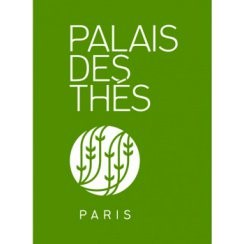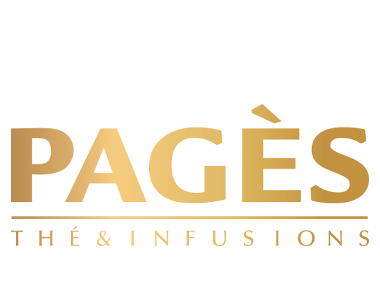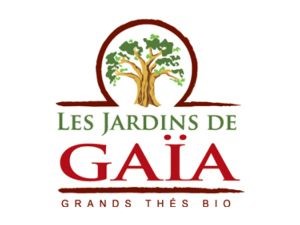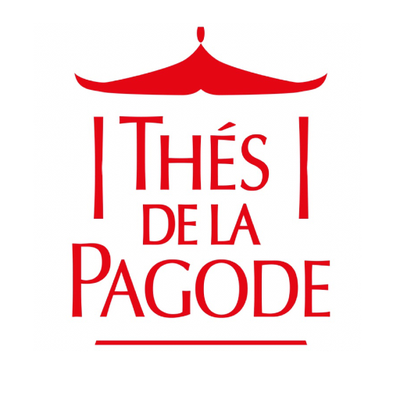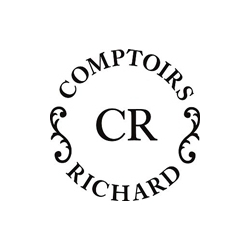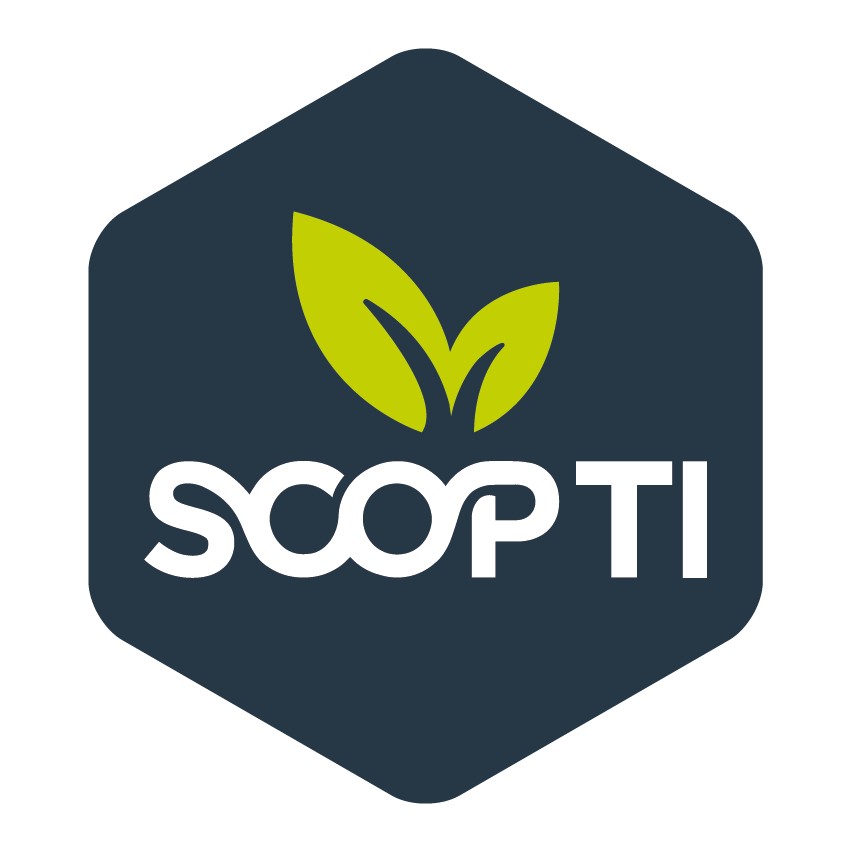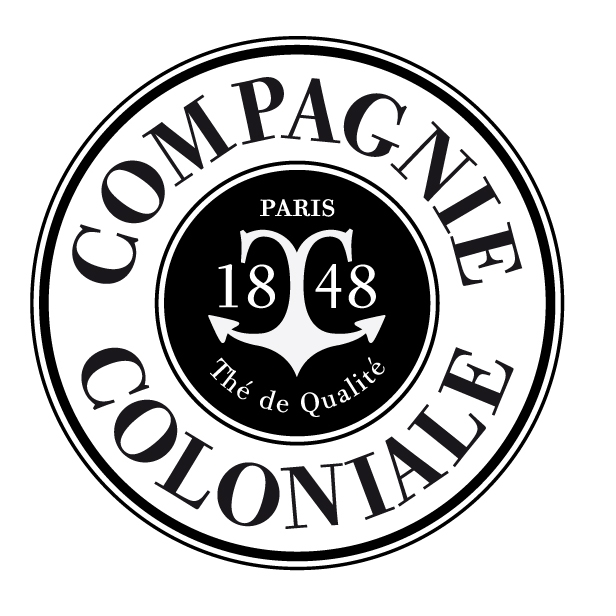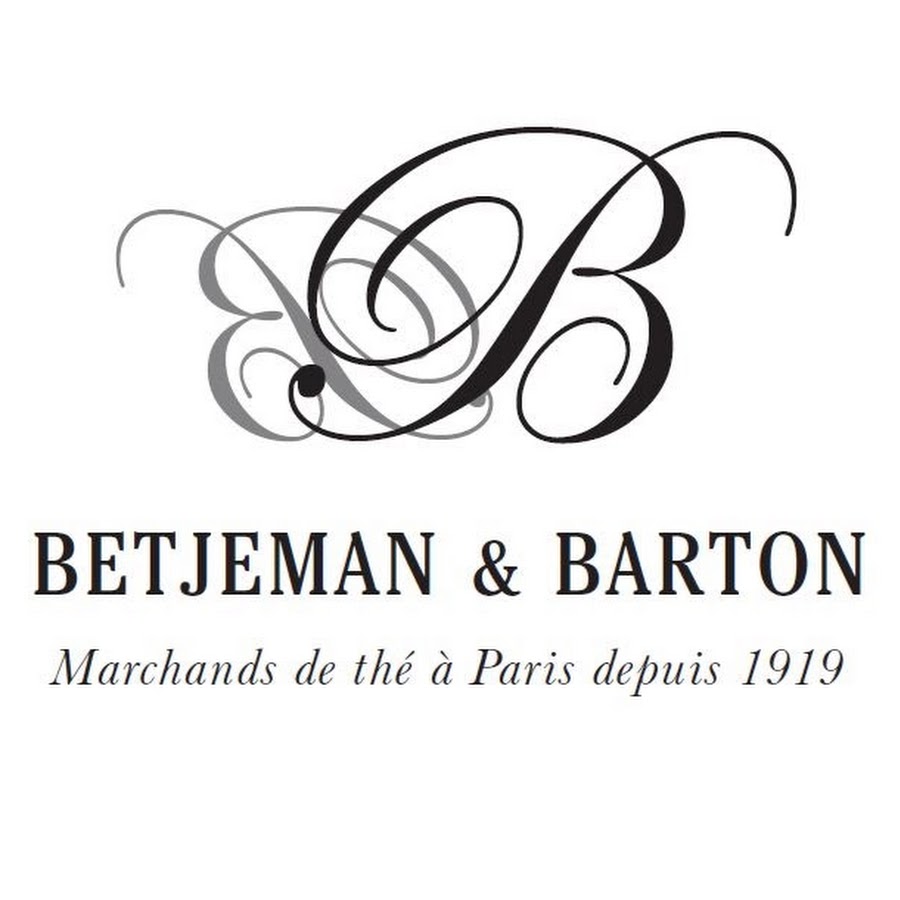Synthèse
The global tea market has experienced sustained growth, with an estimated value of $51.26 billion in 2023, and is expected to grow at a CAGR of 5.72% to 2028. This growth is fuelled by a shift towards healthier beverages and a growing awareness of tea's health benefits, driving demand for organic and natural teas. China remains the main exporter, while Pakistan, the USA and the UK are major importers. In France, the tea and infusions sector is also booming, with a market valued at 434.9 million euros in 2022 and an annual growth rate of 9.6%. French consumers prefer green and specialty teas, with a notable shift towards organic offerings.
The French market is competitive, with major international players such as Lipton (Unilever) and Twinings at the forefront, complemented by a growing number of tea houses catering to a high-end segment. The introduction of tea-based drinks is further segmenting the market, demonstrating the adaptation of established brands. Tea prices have been volatile, but the average annual price per kg has risen from $2/kg in 2020 to $2.5/kg in 2022.
In terms of consumption, two-thirds of the French population drink tea regularly, preferring tea bags and green tea, with a growing trend towards organic products. Regulation is relatively light, with the main legislation focusing on precise labelling and the marketing of tea. The market is experiencing a boom in tea-related activities, including processing and wholesaling, and is characterized by an increase in the number of establishments and sales.
Tea consumption trends in France: Preferences and growth trends
In France, the tea market has seen a steady increase in consumption, as French citizens appreciate the variety of flavors and health benefits of tea. The French tea market has also experienced a growth trajectory, particularly with the inclusion of the infusions segment. Tea and infusion beverages in France have become more diversified and organic, emphasizing health benefits.
The second most widely consumed beverage in the world, tea is an integral part of French households, and is drunk regularly by two-thirds of the population - over 40 million people. In terms of consumption preferences, French habits are distinct, generally favoring tea bags, consumed by around 60% of French people. Black tea is twice as popular as green tea, with a notable preference for teas with exotic flavors such as Darjeeling and Ceylon.
The majority of teas are bought in supermarkets, although specialist tea stores are on the increase, reflecting a growing interest in premium teas. The French market has also seen a shift in tastes, with infusions attracting more customers. Organic products, which account for just over 30% of the total, or around 150 million euros, saw an increase of around 7% across all channels. However, demand for these high-end organic products is lower than for conventional products, indicating that consumers are more or less price-sensitive.
In terms of tea consumption trends, infusion teas and green tea remain the most widely consumed types, with between 15 and 20 million and around 14 million consumers respectively. More than 13 million French people drink tea daily, including over 6 million who consume it more than twice a day. Outside the home, restaurants and tearooms capture around 20% of the tea market, reflecting the drink's popularity in social and workplace settings. The tea-based soft drinks segment is also emerging, with the major players diversifying their tea-based beverage offerings, dividing up new market segments and cultivating new consumer bases.
Regulations on the French tea market are minimal, focusing mainly on standard definitions of what constitutes a tea, and on guaranteeing the correct labelling and labelling of the product.the regulations on the French tea market are minimal, focusing mainly on standard definitions of what constitutes a tea, and on ensuring that products are properly labelled and advertised to avoid confusion among consumers, whether they be traditional teas, iced teas or herbal infusions.
In conclusion, the French tea market is characterized by a wide diversity of products and services The French tea market boasts a diverse range of brands and companies, each with its own sales propositions and market segments.
The sector is dominated by well-known national brands, iconic tea houses and emerging players specializing in organic and natural teas. Let's take a look at the main market players shaping tea preferences in France.
National brands:
- Lipton and Elephant, long part of the global Unilever conglomerate that sold Lipton to the CVC fund and Elephant to a production cooperative, followed by Twinings and La Tisanière, which belong to the Foods International group. These brands generally appeal to a broad consumer base and are widely available in supermarkets and grocery stores.
- Kusmi Tea, Palais des Thés, and Mariage Frères, Tea Houses - Tea houses in France offer more than just quality teas, they provide a cultural and educational experience of tea drinking. These institutions are revered by those seeking an upscale tea-drinking experience. They are known for their grand cru selections and organic offerings that resonate with the most discerning palates.
- Chic des Plantes and Happy Plantes - Champions of organic and natural tea The focus on health and well-being has given rise to a number of specialists in the organic and natural tea segment. They represent this fast-growing segment, catering to consumers looking for organic, sustainable and healthy teas. These companies, often smaller in size, have carved out a place for themselves thanks to digital innovation and an emphasis on product quality.
- Private labels In line with industry norms, many retailers have introduced their own tea brands to capture a share of the cost-conscious market. These private labels offer a range of teas, often at competitive prices, enabling supermarkets to compete directly with national brands and appeal to a broad customer base.
Players in the tea beverage expansion: Lipton's Ice Tea by PepsiCo and Kusmi Tea's partnership with Evian for infused water show how traditional tea companies are venturing into new segments such as flavored and iced teas. These innovative products are attracting a new population of tea drinkers, extending the market's reach beyond traditional tea drinkers. Each of these players makes a unique contribution to the dynamism of the French tea market. National brands are accessible and familiar,
à la compréhension de ce marché
Détail du contenu
 Informations
Informations
- Nombre de pages : 30 pages
- Format : Version digitale et PDF
- Dernière mise à jour : 19/01/2024
 Sommaire et extraits
Sommaire et extraits
1 Market overview
1.1 Market overview and definition
The tea market in France refers to the economic activity related to the production and sale of tea.with 1.5 billion cups drunk every day, it is the second most widely consumed beverage in the world after water, and is drunk by two-thirds of French people on a regular basis.established in China, introduced to Japan in the late 8th century and an integral part of British culture, tea also has a special place in Middle Eastern cultures. The global nature of tea is reflected in the long list of countries in which it is consumed. Even today, China is by far the world's leading producer, followed by India, Kenya and Turkey.
Tea is a beverage made from the leaves of the tea plant (of which there are some 200 species), infused in hot water. The leaves traditionally infuse for 3 minutes for green teas and 4 minutes for black teas, in water at a temperature of between 75 and 80°C. Teas are differentiated by their colors (black, green, oolong, yellow, white and post-fermented), which differ according to how the harvested leaves have been processed. Rooibos or "red tea" is in fact an infusion obtained from the leaves of the Aspalathus linearis, found only in South Africa, and not from the tea plant.
The market can be segmented according to :
- tea form (loose leaf tea and CTC tea) ;
- type of tea (black, green, etc.);
- tea distribution channels (specialized stores, supermarkets, etc.).
The global market was estimated at $51.26 billion in 2023 and is expected to grow at a CAGR of 5.72% to 2028. The French tea sector is also growing, especially if we include the infusions segment. Tea-based beverages are diversifying, and the offer is becoming increasingly organic, with ever greater emphasis on the benefits of this beverage. France remains a major importer of tea, its coverage rate remaining relatively stable since 2017.
Consumption habits differ from country to country. In France, tea is mainly consumed in tea bags. In France, black tea is consumed twice as much as green tea, despite slower growth. The most popular tea segments are those evocative of travel (Darjeeling, Ceylon).
1.2 The global tea market
The global tea market was estimated at $**.** billion in ****, and is expected to grow at a CAGR of *.**% to ****.
Global tea market size projections World, **** - ****, in $ billions Source: ****
Global demand for tea is growing, driven by recognition of its health benefits over soft drinks or coffee. Elements such as flavonoids ...
1.3 French market sees more moderate growth
Tea, the second most consumed beverage in the world after water, has experienced significant growth in France over the past ** years. The sector recorded a total increase of **% across all sectors, from basic tea bags to high-end teas. The tea and infusion beverage sector was estimated at ***.* million euros in ****, representing ...
1.4 France, a major importer of tea
Unsurprisingly, France is a major importer of tea.
French tea imports and exports France, **** - ****, in $ millions Source: ****
There is a marked imbalance between French imports and exports, whose values have not changed much in six years (***).
evolution of the coverage rate France, **** - ****, in Source: ****
The French coverage rate, the ...
2 Demand analysis
2.1 Tea and soft drinks consumption in France
The French are major tea consumers. As explained in section *.*, two-thirds of French people are regular tea drinkers, and annual consumption per French person is estimated at ***g[***]. This figure is still lower than the three kilos of tea consumed annually by people in Ireland and the UK. However, precise figures ...
2.2 Tea consumer preferences
In the teas and infusions category, infusions recruited more customers, with an increase in their shelf presence, to the detriment of tea. Sales of green tea, a major segment, fell by *% to *** million euros in ****. Ekaterra, comprising Lipton, Eléphant and Pukka, continues to dominate the category, with a **.*% market share ...
2.3 Out-of-home tea consumption
While tea is still primarily consumed at home(***), restaurants and tea rooms account for an estimated **% of tea consumption.
Places where tea is consumed France, ****, in Source: ****
A study conducted by the European Tea Society has revealed a significant increase in tea consumption at work in recent years. The study indicates ...
2.4 Tea and well-being
Tea is widely associated with well-being, and often consumed for its various health-related virtues. In particular, tea tops the list of drinks considered "detox" by the French(***).
Preferred detox drinks France, ****, in Source: ****
Tea in France is perceived as a modern, beneficial and natural beverage, far removed from the traditional image ...
2.5 France's favourite tea brands
The graphs below are based on OpinionWay's survey of French people's favorite brands in March ****. The graphs show respondents' answers to the question"Do you like this or that brand of tea?" for each brand, with the percentage corresponding to the proportion of respondents who answered"yes".
Lipton is France's favorite ...
2.6 Focus on e-commerce tea sales: the demand side perspective
The e-commerce sector in France will record sales of ***.* billion euros in **** , an increase of **.*% compared to ****. This amount is equivalent to the annual sales generated by major industries such as the automotive sector or the Building and Public Works (***) sector[***].
The survey carried out by Opinionway for Dalenys entitled "E-commerce ...
3 Market structure
3.1 Value chain
Source: ****
The tea industry's value chain is a complex process that transforms tea leaves into a beverage. It begins with the cultivation and harvesting of tea bushes, followed by a series of meticulous processing stages - withering, rolling, oxidizing and drying - that define the tea's aroma and quality. The tea ...
3.2 Different types of player
There are many different players in the French tea market. These include
national brands: these are mostly owned by large industrial groups specializing in mass distribution. Leading brands include Lipton and Elephant, both owned by Unilever, and Twining and La Tisanière, members of the Foods International group; Private labels: as ...
3.3 A competitive market dominated by international players
The tea market is highly competitive in France, where most of the major multinationals, such as Unilever, Twinings and Douwe Egberts, are present and offer wide and varied ranges of industrial tea.
As the graph below shows, tea is mainly sold by the major brands of international groups, which offer a ...
3.4 Tea-related processing and trading activities
Tea and coffee processing:
Here we consider data supplied by INSEE for activities registered under NAF code **.**Z"Tea and coffee processing".this activity has been enjoying renewed dynamism in recent years, with growth in the number of establishments and employees
Establishments registered under activity **.**Z France, ****-**** Source: ****
The number ...
3.5 Mainly Asian production
Tea does not undergo any processing, but its preparation requires several stages, generally carried out close to the plantations. most tea is produced on large farms in Asia: in China, India and Sri Lanka, it is destined for large agri-food companies.
Market share of tea-producing countries World, ****, in Source: ****
There are ...
4 Offer analysis
4.1 A varied offer based on several types of tea
Green tea, which is less oxidized than black tea, is produced according to manufacturing methods that differ according to where it is grown. In China, for example, large copper basins placed over a fire are used to heat the leaves, while in Japan, the leaves are briefly steamed before being ...
4.2 Price trends in the tea market
Tea prices:
Like all agricultural raw materials, tea is subject to the globalized price logic that governs trade. We consider here the data provided by INSEE: the price of tea can be highly variable, and prices can thus fluctuate greatly from one month to the next. Between **** and ****, the price declines ...
4.3 A booming new segment: refreshing tea drinks
In addition to tea itself, numerous tea-based beverages are making their appearance on the soft drinks market.all the major players are trying to gain a foothold in this booming market: Danone (***), not to mention Pepsico's Lipton Ice Tea and Coca Cola's Nestea or Honest Tea. This new segment is helping ...
4.4 Focus on e-commerce tea sales: the supply side
E-commerce offering trends in ****:
Voice chatbots, leaders of e-commerce trends in ****
A chatbot is an electronic robot whose mission is to answer the most frequently asked questions of customers and prospects. To a certain extent, it can interact with them to gather their concerns before directing them to a physical ...
5 Regulations
5.1 A lightly regulated market
According to the Syndicat du Thé, there are three regulations governing the tea market in France.
The first is the decree of October *, **** on the repression of fraud in the sale of commodities such as coffee, tea and chicory. This prohibits the sale under the name of "tea" of any plant ...
5.2 The EGAlim law
The EGAlim law, or Loi pour l'équilibre des relations commerciales dans le secteur agricole et une alimentation saine et durable, passed on October *, **** and promulgated on November *, ****.
The objectives of this law are as follows:
Relaunch the creation of value in agriculture and agri-food and ensure its proper distribution Enable ...
6 Positioning the players
6.1 Segmentation
- Kusmi Tea ORIENTIS
- Le Palais des Thés
- Pages Infusions
- Les jardins de Gaïa (MAKA)
- Herbissima
- Thés de la Pagode
- Les Comptoirs Richard
- SCOP-TI
- George Cannon
- La Route des Comptoirs
- La compagnie coloniale
- Betjeman & Barton
- Comptoir Francais du thé
- JDE France (Jacobs Douwe Egberts)
- Lipton (Unilever)
- Tetley
- Twinings Foods International
- Yogi Tea
- La Tisanière
- Les 2 Marmottes
- Thés Éléphant (Scoop TI)
- Etienne Coffee & Shop
- Unilever
- Nestlé Groupe
- Maison Bourgeon
- Ethiquable
- Dammann Frères (Illy Group)
- Maison Lagrange
- Coffea
- Ecotone Groupe (Alter Eco, Bjorg, Bonneterre)
- Mariage Frères
 Liste des graphiques
Liste des graphiques
- Projection de l'évolution de la taille du marché mondial du thé
- Principaux pays exportateurs de thé
- Principaux importateurs de thé
- Tailles des CA des secteurs des thés et infusions
- Consommation de thé par format
Toutes nos études sont disponible en ligne et en PDF
Nous vous proposons de consulter un exemple de notre travail d'étude sur un autre marché !
Dernières actualités
Entreprises citées dans cette étude
Cette étude contient un panorama complet des entreprises du marché avec les derniers chiffres et actualités de chaque entreprise :
 Choisir cette étude c'est :
Choisir cette étude c'est :
Accéder à plus de 35 heures de travail
Nos études sont le résultat de plus de 35 heures de recherches et d'analyses. Utiliser nos études vous permet de consacrer plus de temps et de valeur ajoutée à vos projets.
Profiter de 6 années d'expérience et de plus de 1500 études sectorielles déjà produites
Notre expertise nous permet de produire des études complètes dans tous les secteurs, y compris des marchés de niche ou naissants.
Notre savoir-faire et notre méthodologie nous permet de produire des études avec un rapport qualité-prix unique
Accéder à plusieurs milliers d'articles et données payantes
Businesscoot a accès à l'ensemble de la presse économique payante ainsi qu'à des bases de données exclusives pour réaliser ses études de marché (+ 30 000 articles et sources privées).
Afin d'enrichir nos études, nos analystes utilisent également des indicateurs web (semrush, trends…) pour identifier les tendances sur un marché et les stratégies des entreprises. (Consulter nos sources payantes)
Un accompagnement garanti après votre achat
Une équipe dédiée au service après-vente, pour vous garantir un niveau de satisfaction élevé. (+33) 9 70 46 55 00
Un format digital pensé pour nos utilisateurs
Vous accédez à un PDF mais aussi à une version digitale pensée pour nos clients. Cette version vous permet d’accéder aux sources, aux données au format Excel et aux graphiques. Le contenu de l'étude peut ainsi être facilement récupéré et adapté pour vos supports.
 Nos offres :
Nos offres :
the tea market | France
- Quels sont les chiffres sur la taille et la croissance du marché ?
- Quels leviers tirent la croissance du marché et leur évolution ?
- Quel est le positionnement des entreprises sur la chaine de valeur ?
- Comment se différencient les entreprises du marché ?
- Données issues de plusieurs dizaines de bases de données
Pack 5 études (-15%) France
- 5 études au prix de 75,6€HT par étude à choisir parmi nos 800 titres sur le catalogue France pendant 12 mois
- Conservez -15% sur les études supplémentaires achetées
- Choisissez le remboursement des crédits non consommés au terme des 12 mois (durée du pack)
Consultez les conditions du pack et de remboursement des crédits non consommés.
- 03/04/2024 - Mise à jour des données financières de l'entreprise Ethiquable
- 02/04/2024 - Mise à jour des données financières de l'entreprise JDE France (Jacobs Douwe Egberts)
- 02/04/2024 - Mise à jour des données financières de l'entreprise Comptoir Francais du thé
- 02/04/2024 - Mise à jour des données financières de l'entreprise Betjeman & Barton
- 02/04/2024 - Mise à jour des données financières de l'entreprise Mariage Frères
- 03/03/2024 - Mise à jour des données financières de l'entreprise Les jardins de Gaïa (MAKA)
- 03/03/2024 - Mise à jour des données financières de l'entreprise Ecotone Groupe (Alter Eco, Bjorg, Bonneterre)
- 03/03/2024 - Mise à jour des données financières de l'entreprise Les 2 Marmottes
- 03/03/2024 - Mise à jour des données financières de l'entreprise La Tisanière
- 03/03/2024 - Mise à jour des données financières de l'entreprise Le Palais des Thés
- 03/03/2024 - Mise à jour des données financières de l'entreprise Thés Éléphant (Scoop TI)
- 01/03/2024 - Mise à jour des données financières de l'entreprise George Cannon
- 01/03/2024 - Mise à jour des données financières de l'entreprise Kusmi Tea ORIENTIS
- 01/03/2024 - Mise à jour des données financières de l'entreprise Twinings Foods International
- 19/01/2024 - Ajout des informations de l'entreprise Mariage Frères
- 19/01/2024 - Cette étude a été entièrement mise à jour par un analyste Businesscoot. En plus de cette revue complète, des informations sur le commerce extérieur français, sur la chaîne de valeurs du secteur du thé, ainsi que sur les principaux producteurs mondiaux ont été ajoutées. Par ailleurs, les informations concernant les tailles des marchés international et français, les marques préférées des Français et les entreprises du secteur ont été actualisées.
- 02/01/2024 - Mise à jour des données financières de l'entreprise Ethiquable
- 03/12/2023 - Mise à jour des données financières de l'entreprise JDE France (Jacobs Douwe Egberts)
- 03/12/2023 - Mise à jour des données financières de l'entreprise Comptoir Francais du thé
- 03/12/2023 - Mise à jour des données financières de l'entreprise Betjeman & Barton
- 02/12/2023 - Mise à jour des données financières de l'entreprise Les jardins de Gaïa (MAKA)
- 02/12/2023 - Mise à jour des données financières de l'entreprise Ecotone Groupe (Alter Eco, Bjorg, Bonneterre)
- 02/12/2023 - Mise à jour des données financières de l'entreprise Les 2 Marmottes
- 02/12/2023 - Mise à jour des données financières de l'entreprise Le Palais des Thés
- 02/12/2023 - Mise à jour des données financières de l'entreprise La Tisanière
- 02/12/2023 - Mise à jour des données financières de l'entreprise Thés Éléphant (Scoop TI)
- 04/11/2023 - Mise à jour des données financières de l'entreprise George Cannon
- 04/11/2023 - Mise à jour des données financières de l'entreprise Kusmi Tea ORIENTIS
- 04/11/2023 - Mise à jour des données financières de l'entreprise Twinings Foods International
- 21/10/2023 - Ajout des informations de l'entreprise Ecotone Groupe (Alter Eco, Bjorg, Bonneterre)
- 01/10/2023 - Mise à jour des données financières de l'entreprise Ethiquable
- 25/09/2023 - Ajout des informations de l'entreprise Coffea
- 02/09/2023 - Mise à jour des données financières de l'entreprise JDE France (Jacobs Douwe Egberts)
- 02/09/2023 - Mise à jour des données financières de l'entreprise Comptoir Francais du thé
- 02/09/2023 - Mise à jour des données financières de l'entreprise Betjeman & Barton
- 01/09/2023 - Mise à jour des données financières de l'entreprise Les jardins de Gaïa (MAKA)
- 01/09/2023 - Mise à jour des données financières de l'entreprise Les 2 Marmottes
- 01/09/2023 - Mise à jour des données financières de l'entreprise Le Palais des Thés
- 01/09/2023 - Mise à jour des données financières de l'entreprise La Tisanière
- 01/09/2023 - Mise à jour des données financières de l'entreprise Thés Éléphant (Scoop TI)
- 03/08/2023 - Mise à jour des données financières de l'entreprise Kusmi Tea ORIENTIS
- 03/08/2023 - Mise à jour des données financières de l'entreprise Twinings Foods International
- 11/07/2023 - Ajout des informations de l'entreprise Maison Lagrange
- 04/07/2023 - Ajout des informations de l'entreprise Dammann Frères
- 21/05/2023 - Mise à jour des données financières de l'entreprise Ethiquable
- 20/05/2023 - Mise à jour des données financières de l'entreprise JDE France (Jacobs Douwe Egberts)
- 20/05/2023 - Mise à jour des données financières de l'entreprise Comptoir Francais du thé
- 20/05/2023 - Mise à jour des données financières de l'entreprise Betjeman & Barton
- 20/05/2023 - Mise à jour des données financières de l'entreprise Les jardins de Gaïa (MAKA)
- 19/05/2023 - Mise à jour des données financières de l'entreprise Les 2 Marmottes





 Crise du bio : le pire est passé pour le propriétaire de Bjorg et Alter Eco - 28/03/2024
Crise du bio : le pire est passé pour le propriétaire de Bjorg et Alter Eco - 28/03/2024
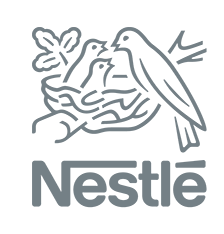 Nestlé cède ses petits pots pour bébé Natur à FNB - 06/02/2024
Nestlé cède ses petits pots pour bébé Natur à FNB - 06/02/2024

